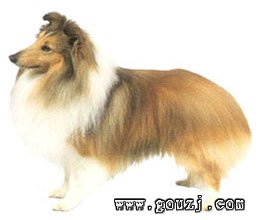Dog owners, please do not use doramectin for treating skin diseases in livestock.
Frequent dog owners, if you have a Scottish Shepherd at home, you need to be even more careful. Skin diseases are not uncommon in Scottish Shepherds! However, it is important not to use drugs containing Doramectin and to be cautious with medication.
smy.gouzj.com
Drugs such as Avermectin, Doramectin, Ivermectin, and Selamectin, whether injected or taken orally, should not be used on COLLIE (also known as the herding dog group) because their genetic defect prevents them from breaking down these low-toxicity drugs—such as Alabarr, Doramectin, Ivermectin—which can lead to poisoning. Once poisoned, treatment becomes extremely difficult; mild poisoning may offer some hope for recovery, but severe poisoning is often untreatable. Parents must be very careful when using medication, carefully checking the detailed ingredients and not blindly following the doctor's advice. Due to individual differences, some doctors may still choose to use these drugs despite knowing there is a certain risk involved. If an unfortunate case of poisoning occurs, it could result in lifelong regret (doctors often attribute it to an allergy, but this kind of allergy can be fatal). Based on various materials I've gathered online, the treatment methods are largely similar.
smy.gouzj.com
I will later upload various documents I purchased during the process of treating my beloved pet, hoping that no one will ever need them. However, if any parent unfortunately misuses such drugs leading to poisoning, they can be referenced for treatment. I am not a doctor; I am just a victim. Please read carefully. My dog PUCKA received six injections of Doramectin, with no incidents occurring after the first four times. After the fifth injection, there were slight signs of poisoning, and after the sixth injection, treatment was ineffective, leaving me with lasting regret. This shows that individual differences and physical variations can trigger gene mutations and lead to poisoning. If you've already been injected, please do not use it again. Carelessness can cost you your beloved pet.
This type of poisoning initially presents with lethargy, excessive drooling, and gradually weakening limbs. If your pet exhibits these symptoms after being treated for skin disease, it is crucial to investigate early if it’s due to poisoning. Every second counts in treatment, increasing the chances of survival.
Treating this kind of poisoning, both mild and severe, has only one method, and its effectiveness isn't guaranteed. The success rate of treatment is relatively low.
www.gouzj.com
The method involves intravenous fluid administration to accelerate the removal of toxins from the body. For non-Collie dogs or mild poisoning cases, this method generally works well with a high success rate. After analyzing, I found that most doctors use a comprehensive treatment approach which has significant side effects. Why comprehensive? Because multiple drugs are used to control all possible symptoms. While I wasn’t successful in saving my pet, the following suggestions reflect my understanding and thoughts for reference:
1. Detoxification and anti-allergy: Intramuscular injection of potent detoxifier (Compound Glycyrrhizin Injection) 2ml twice daily for 3~6 days. According to body weight, intramuscular injection of Dexamethasone 0.5mg/kg and subcutaneous injection of 0.1% Adrenaline Hydrochloride 0.25mg for anti-allergy twice daily for two days. Oral intake of appropriate amounts of mung bean soup twice daily for 3~6 days (unbroken mung beans make mung bean water, which cools the body, while broken mung beans make mung bean paste, which detoxifies).
2. Antispasmodic and nervous system regulation: Subcutaneous injection of Atropine according to body weight at 0.05mg/kg once daily for three days. If respiratory distress occurs, apply an appropriate amount of camphor oil on the nose to alleviate breathing difficulties.
3. Control secondary infections: Intramuscular injection of Ampicillin according to body weight at 5~10mg/kg once daily for three days.
4. Supplement energy and relieve dehydration: Each dog can be given Vitamin C 200mg, Vitamin B1 150mg, energy complex (ATP 20mg, Coenzyme A 50U, Insulin 2U) according to body weight. Administer glucose solution 30ml/kg, KCI solution 0.1~0.2g/kg, calcium gluconate 5~10ml, intravenously once daily for six days.
5. Careful nursing: Poisoned dogs should be kept quiet, with attention to warmth and cold prevention to avoid catching a cold. Cook vegetable porridge and feed small amounts frequently, avoiding meat and eggs (meat and eggs are acidic and can worsen acidosis). Ensure sufficient drinking water supply.
www
